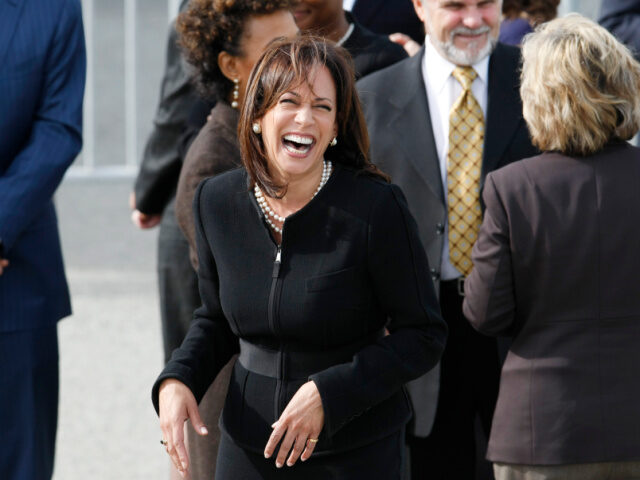Political Realignment: 88 Big-Business Leaders Endorse Kamala Harris
 P Photo/Paul Sakuma
P Photo/Paul Sakuma
Eighty-eight big-business leaders signed a letter Friday endorsing Vice President Kamala Harris for president, underscoring the ongoing political realignment since 2016.
Before former President Donald Trump won the presidency, the Republican Party appeared to be the party of big-business and corporate interests. Now the Democrat party is taking up that mantle in the banner of globalism and “democracy,” a reformation of political identities dating back to Franklin D. Roosevelt and beyond.
“We endorse Kamala Harris’s election as President of the United States,” the big-business leaders wrote:
Her election is the best way to support the continued strength, security, and reliability of our democracy and economy. With Kamala Harris in the White House, the business community can be confident that it will have a President who wants American industries to thrive. As a partner to President Biden, Vice President Harris has a strong record of advancing actions to spur business investment in the United States and ensure American businesses can compete and win in the global market. She will continue to advance fair and predictable policies that support the rule of law, stability, and a sound business environment, and she will strive to give every American the opportunity to pursue the American dream.
The leaders who signed the letter include:
A majority of voters support the United States placing a ten percent tariff on all imports, a J.L. Partners/Daily Mail poll recently found.
The issue of tariffs is one of the longest-running debates in U.S. history. Tariffs generate revenue for the federal government and encourage domestic production in some industries by acting as a protective barrier against foreign competitors.
As Breitbart News reported, average tariffs increased to as high as 60 percent before declining to 20 percent between 1790 and 1860, according to Douglas A. Irwin’s “Trade Policy in American Economic History.” From 1861 to 1933, average tariffs increased to 50 percent. Since 1934, tariffs declined to an average of about 5 percent due to the rise of an idea dubbed “free trade.”
Free trade sidelined tariffs in policy debate until 2016 when Trump campaigned on America First policies that protect American producers.
Some economists believe “free trade” is a radical idea born to profit the global elites.
RELATED — Trump on Putin’s Kamala Endorsement: “I Don’t Know if I’m Insulted or He Did Me a Favor”
Right Side Broadcasting NetworkWendell Husebo is a political reporter with Breitbart News and a former GOP War Room Analyst. He is the author of Politics of Slave Morality. Follow Wendell on “X” @WendellHusebø or on Truth Social @WendellHusebo.
Source link

